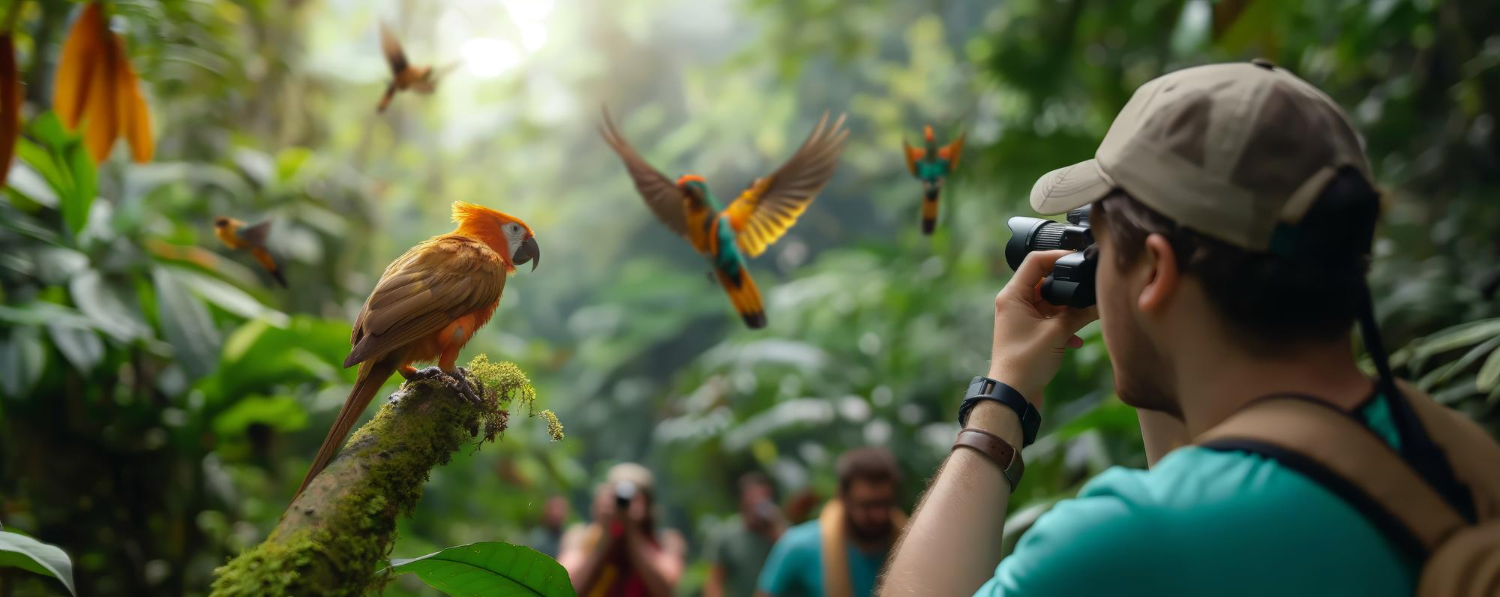Sometimes we all just need an escape. Not so much a holiday to check off the list of places, but a genuine pause: a way to feel grounded, to listen acutely, and to reconnect with the simple pleasures that tend to get lost in the din of daily life. For many nature enthusiasts, that reset doesn't occur on crowded beaches or crowded hill stations, but in more serene locations where the beat of the wild rules the day. Kabini, located on the banks of Kabini River in Karnataka, is one such haven.
Though famous for its vast wildlife and distance from Nagarhole National Park, Kabini has become a little-known paradise for birdwatchers both pro and amateur alike. With its more than 250 species of birds, Kabini provides not only a treat to the eye but also an experience that invokes our deeper instinct for quietude, concentration, and harmony with nature.
Why Birdwatching in Kabini Feels Unique
It's not merely a matter of spotting birds; it's the environment around you while you do it.
In Kabini, the days begin slowly. Mist lingers low over riverbanks, and the only noise you can hear is the early morning chirping of birds welcoming the dawn. You don't have to break the bank with equipment to get started. A basic pair of binoculars, a notebook, and some patience suffice. And before long, you're not even noticing unread messages or alerts. You're seeing a Malabar pied hornbill soar through the canopies or a crested serpent eagle on a tall branch, scanning the shrubbery.
Birding here is a pastime - indeed, a way of being.
The Emotional Pull of Birdwatching
Most of us are hungry for something real. After months or years spent bound to screens, speedy timelines, and urban din, birdwatching at Kabini seems delightfully slow. And the slowness isn't a negative, it's the idea.
Studies have shown that simply listening to birdsong can reduce stress and improve mental health. For those dealing with burnout, anxiety, or just the dull ache of routine, this kind of immersive experience in nature can be genuinely healing.
You’re not just looking for rare birds: you’re rediscovering wonder, awe, and the satisfaction of sitting still.
What Makes Kabini Ideal?
As opposed to other wildlife destinations that tend to be crowded or rushed, Kabini is relaxed. Safari lodges here are environmentally conscious, and the forest department encourages responsible tourism.
But what actually makes Kabini special for birders is the mixed landscape, dense forests and open grasslands on one hand and serene backwaters on the other. This richness provides perfect habitats for birds such as the Indian pitta, white-bellied woodpecker, grey-headed fish eagle, and the shy Oriental darter.
Whether you’re trekking through the forest or sitting quietly on a coracle in the backwaters, there’s always a sense that something beautiful could appear around the next corner or in the next tree.
Making It Part of Your Life
If you're a beginner to birdwatching, Kabini is the perfect place to begin. There's no expectation here: just you, nature, and time. You may not immediately recognize the birds by name, and that's fine. The beauty is in observation, in learning to listen and see slowly.
And if you’re already a bird watching enthusiast, Kabini offers just enough challenge and discovery to keep things exciting. Every visit reveals something new, a new call, a fleeting glimpse, a rare species.
When and Where to Stay
The best time to visit Kabini for birdwatching is between October and March, when migratory birds join the already rich resident population. Early morning safaris and boat rides are particularly rewarding during these months.
When one needs to be near nature but not compromise on comfort, then choices such as 3 Hills at Aster Holidays are just the thing. Nested among trees, it's where you can head back to after a tiring day of wandering around, take a cup of chai on the veranda, and hear birds roosting for the evening.
Explore 3 Hills: A Peaceful Retreat in Nature

